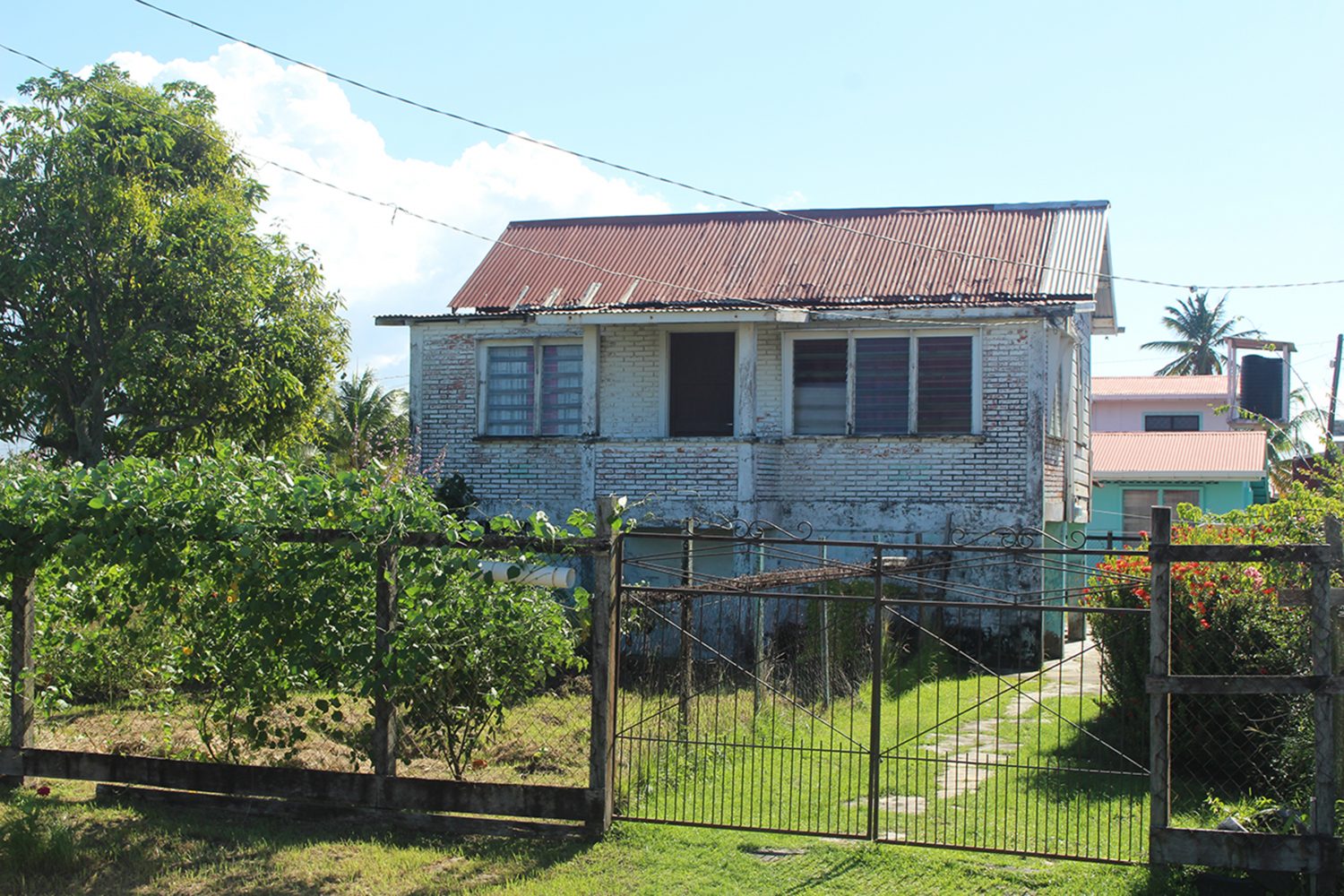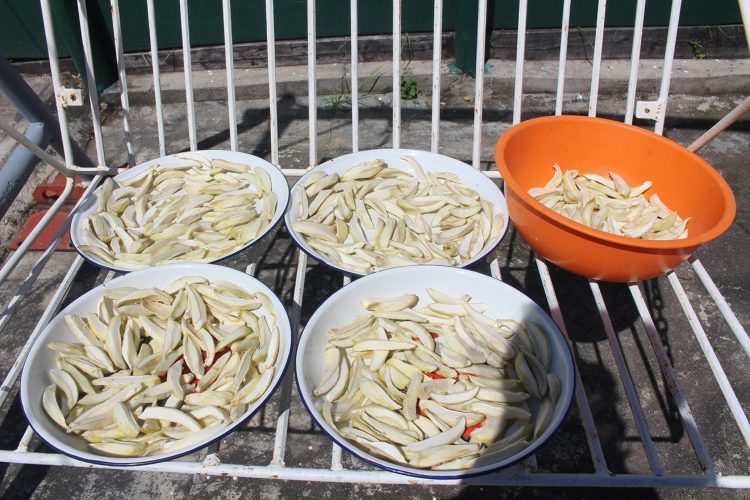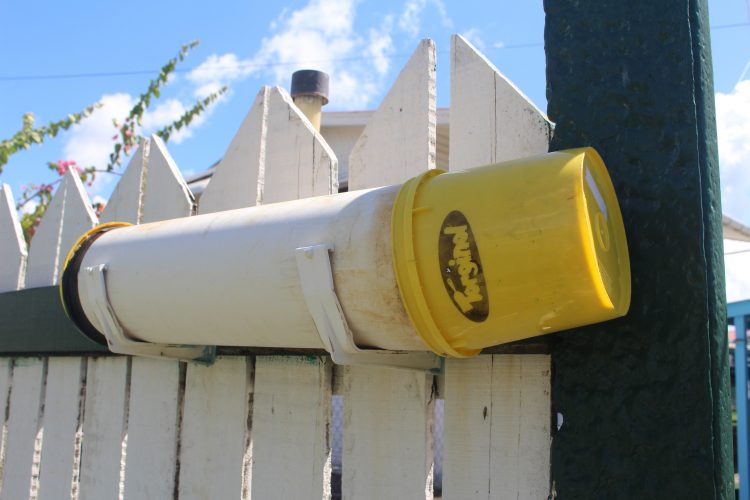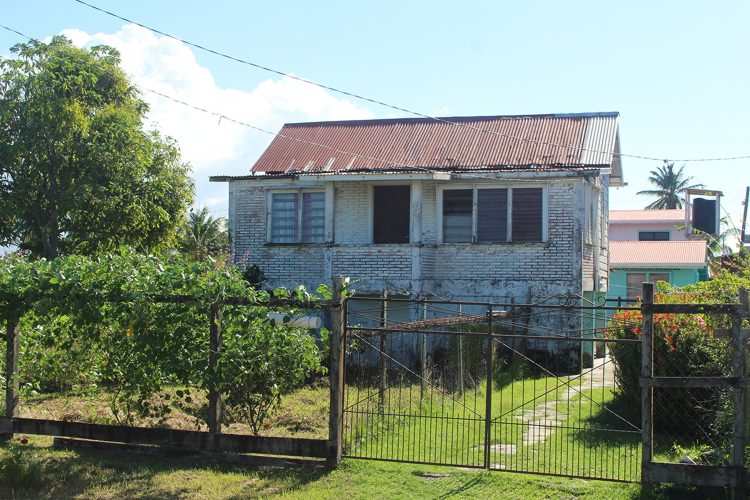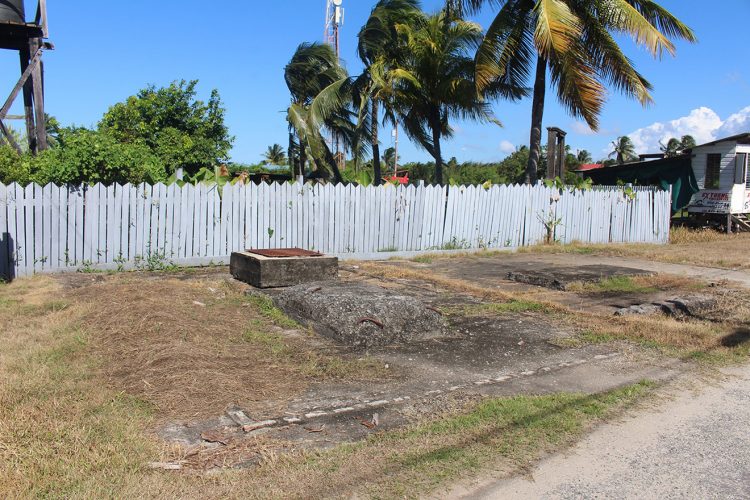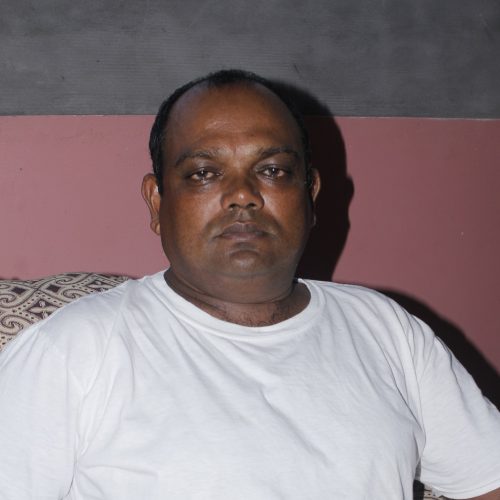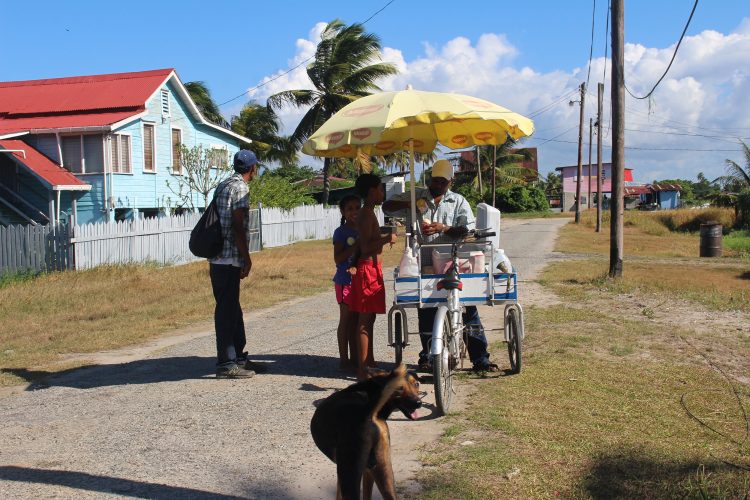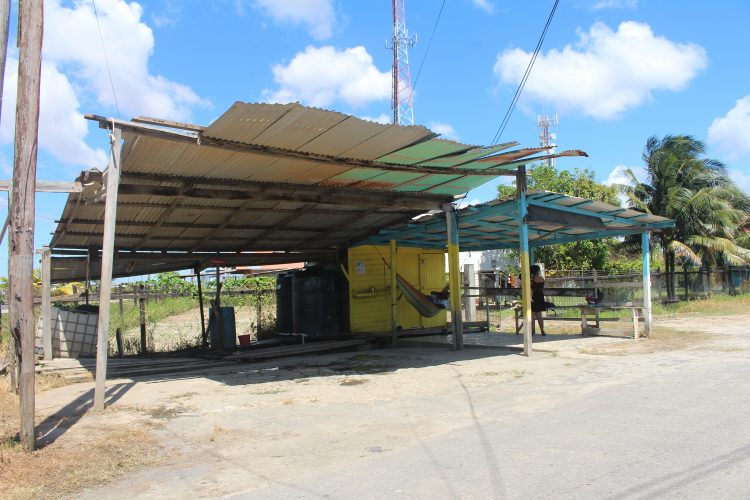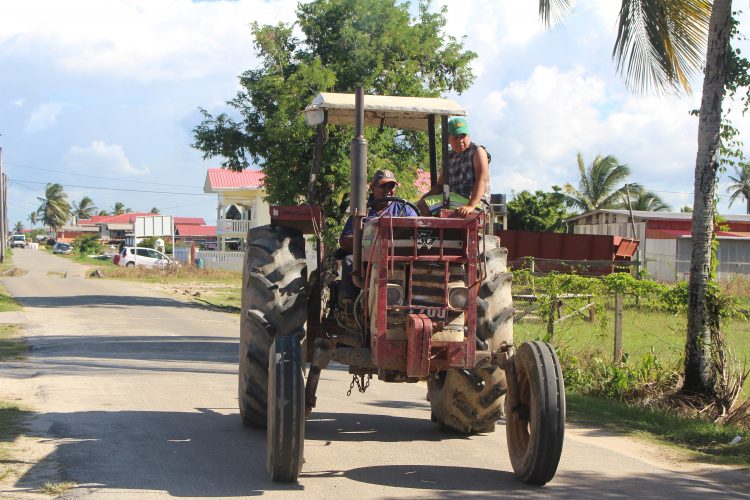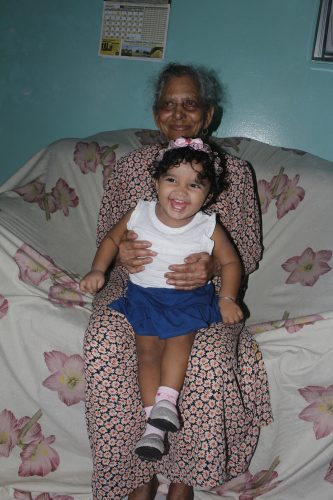Pakistan sits snugly between Windsor Forest and La Jalousie on the West Coast Demerara approximately nine kilometres from the Vreed-en-Hoop Police Station. The village is home to an average population of 100 persons, most of whom are Muslims.
I first heard of Pakistan some time ago from a colleague of mine, but it wasn’t until I was walking through the village one day with a friend that she pointed out to me where I was.
Almost every lot in Pakistan has a house on it, vacant lots are rare. My friend explained that the village starts at Gap Road also called ND&S Road (after the furniture store situated there) and ends at the Pakistan Bridge Road.
When I returned for the purpose of this feature, before the bus came to a stop I could see empty plastic bottles strewn along the sea dam, not a pretty sight but the people who live there are friendly enough. Disembarking the bus, the first thing I spotted was GTT workers high up busy fixing a cable.
Amina Osman was enjoying a chat with her daughter-in-law when I arrived. Osman, who is now a resident of Canada, was visiting relatives in Pakistan. Though now a visitor, she had spent a great deal of her life in Pakistan.
According to the 84-year-old woman, most of Pakistan was owned by her uncle, Mansab ‘Willie’ Ali, who wanted his relatives to occupy the land in the village and invited them to purchase lots. Osman and her husband, who were living in Windsor Forest at that time, took up the offer and moved with their already growing family of a boy and a baby girl. But tragedy struck shortly after they settled in Pakistan, when their 13-month-old daughter died. As time went by, the family grew to include three more boys and two girls.
She recalled that they paid $200 for their first plot of land; they later resold it with the house for $2,500, before purchasing a house and land for $4,500.
The woman added that though many of the earlier residents would have arrived from neighbouring Windsor Forest, Pakistan was considered part of La Jalousie before it got its name. She strongly believes this came about through anecdotal reference. She recalls her daughter, who attended West Demerara Secondary School being teased by the conductors and drivers about the Muslim area she lived in; she said it was the outsiders who nicknamed the village Pakistan. Today the bills and letters arriving, come with the address as Pakistan.
Meanwhile, Ali, she continued, later returned to Windsor Forest to establish a rice mill, which no longer exists.
Still curious about why the road is named Pakistan Bridge, I asked Osman, who explained that prior to the road being built, there was a bridge connecting the dam to the highway. One of the persons who helped to build the bridge she clearly recalled was a young man called ‘Chico’. He died the week after finishing the bridge and was the “first death to cross the bridge” to be buried at Windsor Forest Cemetery.
Osman’s granddaughter-in-law, who now lives in Pakistan and had been quietly sitting and listening, broke her silence to say that a number of times she had requested the Pakistan Bridge stop, but some minibus conductors and drivers are clueless as to where it is, so instead she would have to tell them to stop at the wash bay.
Asked about the GTT crew in the area, the young woman said that a few months ago, something went wrong with one of the cables causing her and her neighbours loss of service. Though it was just two months since that has happened, she complained that it had been eight months since she had not been getting any service from the telephone company yet every month she receives a bill.
Although Pakistan’s residents are predominantly Muslim, there is no Masjid or any other place of worship. Osman’s family would usually attend the bigger of two Masjids in Windsor Forest.
She and her in-laws agreed that the life is peaceful and quiet and that the people who live in Pakistan are some of the friendliest around.
Bibi Khan-Ali was my next stop. Once inside her yard, she directed me to a sofa under the house with her dough-covered hand before returning inside to get her hands cleaned so we could have our talk.
Khan-Ali arrived in Pakistan when she was just four years old from Windsor Forest, in the year 1963.
“Those were wonderful days minus technology; the streets were our playground. We played hopscotch and sal-out when the sun was cool but when the sun was too hot, the girls would stay indoors and play with their dolls. When outside, we [pretend] cook in our coconut shells,” she reminisced.
At Easter time, she continued, the boys would get together and make kites. Although it was a Muslim community, she added, they would still celebrate the various religious holidays.
During those earlier years, when the August vacation came around, the boys would climb coconut trees returning with dry coconuts for the adults who once they got a fire going in their backyards, made sugar cakes. However, many of the earlier villagers have died or have migrated so though friendly, things have changed with time and persons now are more reserved.
Khan-Ali had her own version of how Pakistan came about. According to her, Mansab Ali had given the village to his brother Mohamed Feroze, who later gave plots of land to his four sons. It was Feroze’s mother, Khan-Ali said, who, wanting the village to remain a family community and more so a Muslim community, named it Pakistan.
Today there are a few residents from outside of the family who rented or bought land and houses, some of them make up the smaller percentage of other religions. However, the practices of not playing music loudly and not imbibing alcohol are still kept, in keeping with the Muslim traditions.
Pakistan may not have shops or schools or places of worships, but it is not at any disadvantage as they are all around. Windsor Forest Nursery and Primary are just close by along with the health centre. There is also a depot there as well, where the villagers can get fresh fish every day.
As we spoke, Khan-Ali’s phone rang startling her; she had not heard it ring since June 4.
Asked about the plastic bottles littering the sea dam, she explained that though, the canals are kept relatively clean, some of the garbage thrown into the canals is washed out to sea and once the tide comes in, it brings additional garbage, littering the sea defence.
Khan-Ali is mostly contented with life in Pakistan. She wishes however that the potholes along High Dam (the back road) could be fixed.
Forty-eight-year-old Safee Mohamed moved to Pakistan with his parents from Windsor Forest when he was 12 years old. The village then, he said, looked almost the same except the houses had older designs. He recalled that there was about the same amount of houses as today, but with almost double the amount of people. Most, he said, have migrated.
The fisherman reminisced on a boyhood filled with cricket and football in the streets. The boys today, he said, don’t know this kind of life.
Three times a week, Mohamed is at one of the stalls in Windsor Forest selling his catch. His life as a fisherman started after he left primary school; there were no secondary schools that he knew of. After writing his exams, he joined his brothers and father out at sea.
Mohamed said carts and vans pass through the village every day selling greens, groceries, water and just about everything else. Many years ago while he was still a teenager, he remembers people taken up with their gardening; no one thought of purchasing greens back then.
He said he would like to see improvements on the roads and the drainage as it floods sometimes with excess rainfall. Mohamed would like also for the vacant houses to be occupied so as not to just have them there all closed up when there are so many other persons in need of homes.
The villager said that his experience in New York could never measure up to life in Pakistan. “Life in New York is too fast and congested. I like living in the country. I like to know when I’m home from work, I can rock-back in my hammock,” he said.
